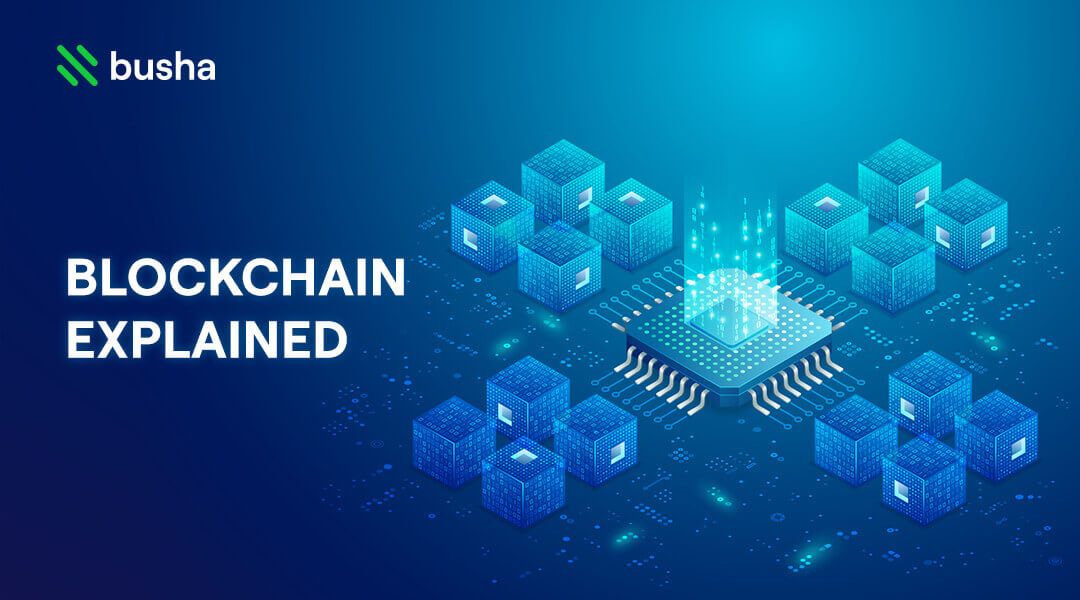
Blockchain Explained
What is Blockchain
A blockchain explains a type of distributed network that allows the development of applications, technologies, and features that create value over the internet. Better explained, the concept of blockchain or blockchain technology involves a joint network of superior systems that verify, record and store information necessary to build, execute transactions and other internet-supported processes with speed and convenience. Compared to native systems and web 2 protocols that require middle-men/intermediaries to regulate and verify transactions, blockchain technology candle all these and more without delay or intermediaries.
How does blockchain work
Imagine a string of people tightly holding hands together. But in this case, every interconnection on that string is a block of information that contains transaction data. At the beginning go this strong, you have access to all details of an activity carried out today and further below, those that have occurred previously. With blockchain, every transaction carried out in the timeline of a cryptocurrency is recorded and open to the public keeping in mind the anonymity of users.
Another way to explain how the blockchain ecosystem works are first understanding the need for high-end software created for computers that allow people to create a network capable of accessing the blockchain in a distributed way.
“Take Kachi for example who wants to send some money to his mother. The record of this transaction is recorded online on a new block. This new block is then broadcasted to all systems on the network which then approve and verify the transaction has taken place. Once this occurs, the new block is linked/chained to already existing blocks containing similar transaction worldwide and finally concludes the transaction.”
The example shows the presence of multiple computers or systems making sure that a single block isn’t left to one computer to verify but a group located across different parts of the world with access to the internet. This process validates the decentralized and public nature of blockchain technology and how it takes not one, but many entities to validate a single activity keeping it open, secure, fast, rewarding while maintaining the privacy of users.
Benefits of blockchain technology
Leveraging speed, interconnectedness, public participation, security, and privacy, blockchain technology can be used to not only create new functions in human day endeavors but also upgrade already existing activities that required a long chain of people command before execution.
Creation of digital assets and Cryptocurrencies: Different blockchains exist for different purposes. Some have been created particularly for a native cryptocurrency like Ether (ETH) this native coin is the fuel of the Ethereum network. Because this network has different layers of protocols, more tokens (secondary crypto assets) can be created leveraging the blockchains network. Picture a big house with many rooms and each room has different functions they perform and value given.
- Privacy is key: Unlike traditional day finance or internet access that requires users to provide sensitive information about themselves before being granted access to a piece of content or activity, blockchain requires nothing more than your access to the internet. You can remain nameless or decide to use cool usernames and modified images of value (NFTs) to create a profile to keep your real-world persona safe.
- Public Access: The activities of blocks provide transparency, traceability, and information counter-checking before validation. All information carried out is completely accessible to the network's users.
- Fast and Decentralized: the absence of third parties or centralized entities such as; banks or principal administrators create a quick method of executing transactions without fear of outrageous fees or sharing sensitive personal information that could be sold to bug data companies or hacked to access your assets.
The Future of Africa powered by Blockchain technology
It is key to mention that while the basic principles behind blockchain technology remain the same, the opportunities and new technological advancements built on and powered by it are countless. For Nigerians and many African communities it could mean:
- Access to internet currencies not affected by gross inflation and international debts,
- remote opportunities to trade digital assets and cryptocurrencies of value, creation of applications and software with full public access and free to all without government control,
- Education and awareness to newer technologies to level the playing field with the more developed countries,
- And finally, opportunities to create wealth without fear of theft, mismanagement, or stories that touch.
These are only a few opportunities already in the works for Africa and the benefits of blockchain cut across different industries from manufacturing and finance, to retail and service providers.
Visit Busha Learn for more information about everyday crypto basics

